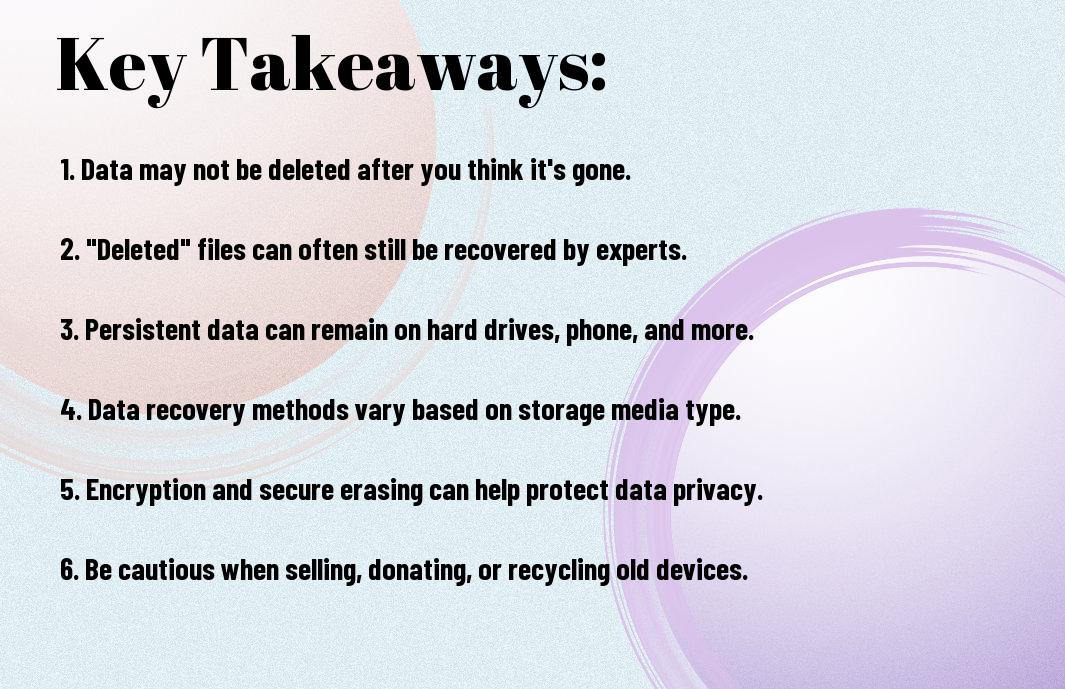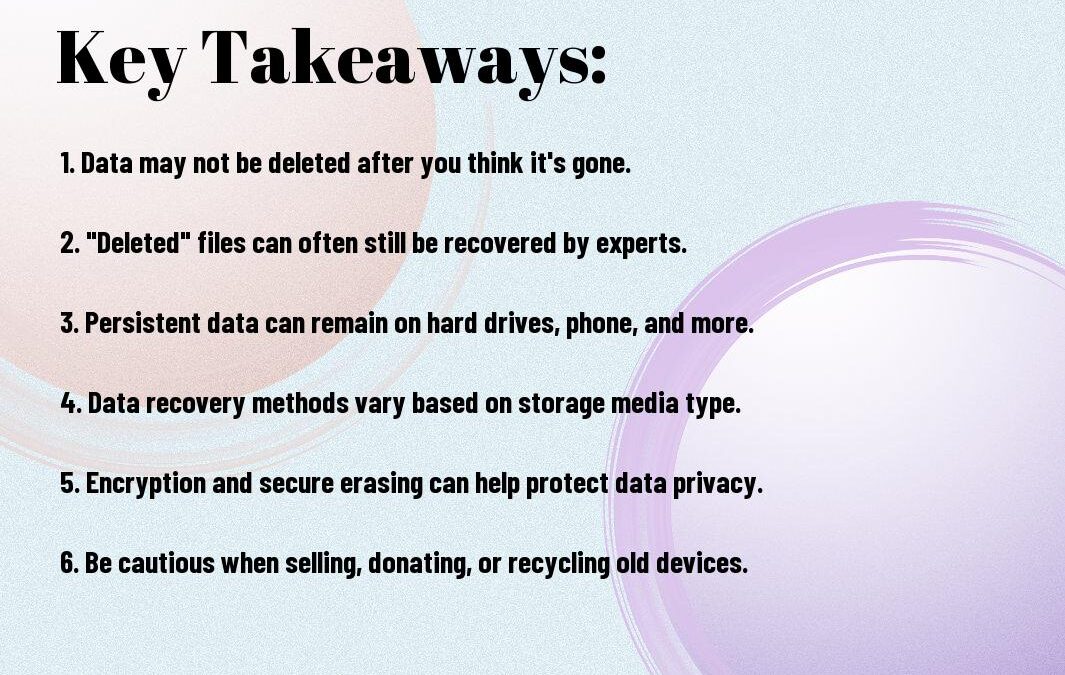Experts in the field of data recovery suggest that even when you think your data is deleted forever, it might still be lurking somewhere in the digital realm. The idea that data can never truly be erased has significant implications for individuals and organizations alike. In this blog post, we probe into the fascinating world of data retrieval and explore the possibilities that exist beyond what meets the eye.

The Illusion of Deletion
The myth of permanent data erasure
Illusion: Before you hit that ‘delete’ button, thinking your data is gone forever, think again. Experts argue that data deletion is not as straightforward as it seems. Your data may still exist in the digital realm, waiting to be retrieved.
How data remnants linger
To truly understand the depth of data retention, consider this – when you delete a file, you may just be removing the pointer to it, not the actual content. These remnants could potentially be recovered through various techniques, highlighting the importance of secure data disposal practices.
With the proliferation of data recovery tools and techniques, it’s becoming increasingly clear that data remnants can persist long after deletion. Even formatting a drive may not always guarantee the complete eradication of sensitive information. This underscores the need for stringent data management and disposal protocols to ensure data is truly irretrievable.
The Data Forensics Revolution
Expert techniques for data recovery
If you think that deleting a file means it’s gone forever, think again. Experts in data forensics have an arsenal of techniques at their disposal to recover seemingly lost data. From analyzing digital footprints to reconstructing deleted files, these professionals have the skills to retrieve information that most people would consider irretrievable.
The role of digital archaeology
Forensics experts play the role of digital archaeologists, delving into the virtual past to unearth hidden data. By examining old hard drives, cloud databases, and even social media accounts, these modern-day detectives can piece together a comprehensive picture of a person’s digital footprint, even if the data has been intentionally deleted or lost due to technical errors.
Forensics is not just about solving crimes; it’s also about uncovering the truth behind digital mysteries. Whether it’s recovering important documents for a legal case or piecing together a person’s online activities, data forensics experts are the modern-day explorers of the digital world.
The Consequences of Incomplete Deletion
Data breaches and cybersecurity risks
To protect sensitive information, ensuring complete data deletion is crucial. Incomplete deletions can lead to data breaches, allowing unauthorized access to confidential data. This breach can have severe consequences, including financial loss, damage to reputation, and legal implications. It is imperative for individuals and organizations to implement secure data deletion practices to mitigate cybersecurity risks.
Privacy implications and legal concerns
Deletion of data is not just about freeing up space; it is about safeguarding privacy and complying with legal regulations. Incomplete deletion can result in privacy breaches, exposing personal information to malicious actors. Legal frameworks such as GDPR mandate proper data handling, making it necessary for entities to ensure thorough data erasure to avoid legal repercussions.
Concerns: Inadequate data deletion practices can raise significant concerns regarding privacy infringement and non-compliance with data protection laws. Failure to securely delete data can lead to violations of privacy rights and regulatory standards, triggering penalties and tarnishing the trust of stakeholders. It is vital for individuals and organizations to prioritize comprehensive data deletion to uphold privacy and adhere to legal requirements.
Conclusion
Summing up, contrary to common belief, experts suggest that data may not be completely gone forever even when deleted. This thought-provoking insight challenges us to reconsider how we perceive data deletion and privacy in the digital age.

